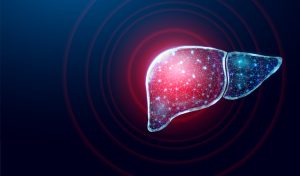 Approximately 5% of the general population will develop a liver hemangioma at some point during their lives. Liver hemangiomas are the most common type of benign liver lesion, meaning that they generally are not a cause for concern if you’re diagnosed with one. Occasionally, however, they can lead to certain unpleasant symptoms and potentially serious complications.
Approximately 5% of the general population will develop a liver hemangioma at some point during their lives. Liver hemangiomas are the most common type of benign liver lesion, meaning that they generally are not a cause for concern if you’re diagnosed with one. Occasionally, however, they can lead to certain unpleasant symptoms and potentially serious complications.
Liver hemangiomas are more likely to cause symptoms when they’re larger than average. Typically, they’re only about three centimeters, but can be as much as ten centimeters in size. Abnormally large liver hemangiomas can lead to abdominal pain, bloating, and nausea. Rarely, they can also compress blood vessels, cause bleeding in the abdominal cavity, lead to blood clotting, scarring, or calcium deposits, or potentially cause serious internal bleeding due to a rupture in the tumor.
It isn’t clear what causes liver hemangiomas to develop, but they’re more common in middle-aged people assigned female at birth. This may be due to a connection between liver hemangiomas and high estrogen levels.
These lesions may be mistaken for cancer when they lack typical identifiable features, though this is rare and diagnostic imaging can usually help to distinguish the two. Liver hemangiomas typically remain stable rather than changing shape or spreading from another part of the body, as cancer typically does.
Most liver hemangiomas won’t require treatment unless they seem to be growing. In this case, your doctor may want to prevent further growth by blocking the lesion’s blood supply. Surgical removal of the lesion may be recommended in severe cases.
If you’re experiencing symptoms that may indicate the presence of a liver hemangioma, you can schedule an appointment with a specialist at Flushing Hospital Medical Center’s Ambulatory Care Center by calling (718) 670-5486.
All content of this newsletter is intended for general information purposes only and is not intended or implied to be a substitute for professional medical advice, diagnosis or treatment. Please consult a medical professional before adopting any of the suggestions on this page. You must never disregard professional medical advice or delay seeking medical treatment based upon any content of this newsletter. PROMPTLY CONSULT YOUR PHYSICIAN OR CALL 911 IF YOU BELIEVE YOU HAVE A MEDICAL EMERGENCY.
